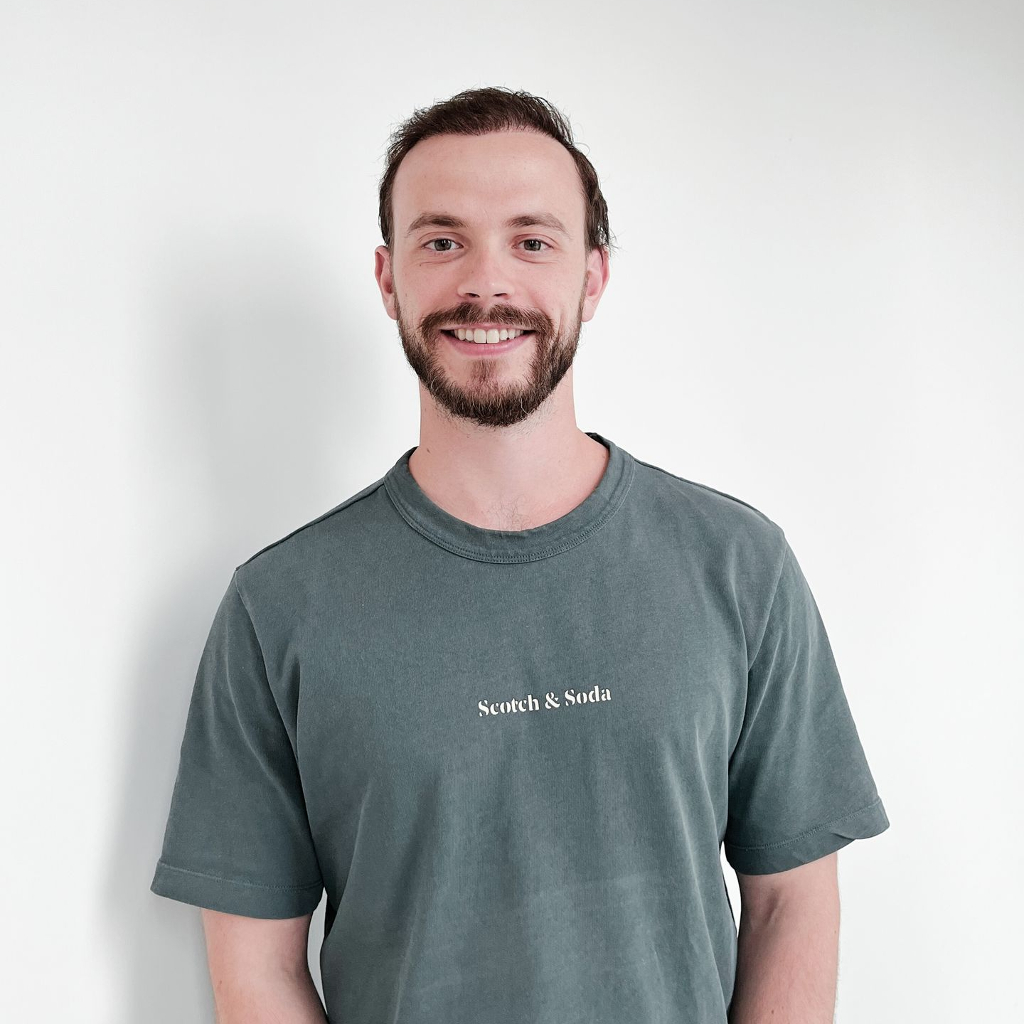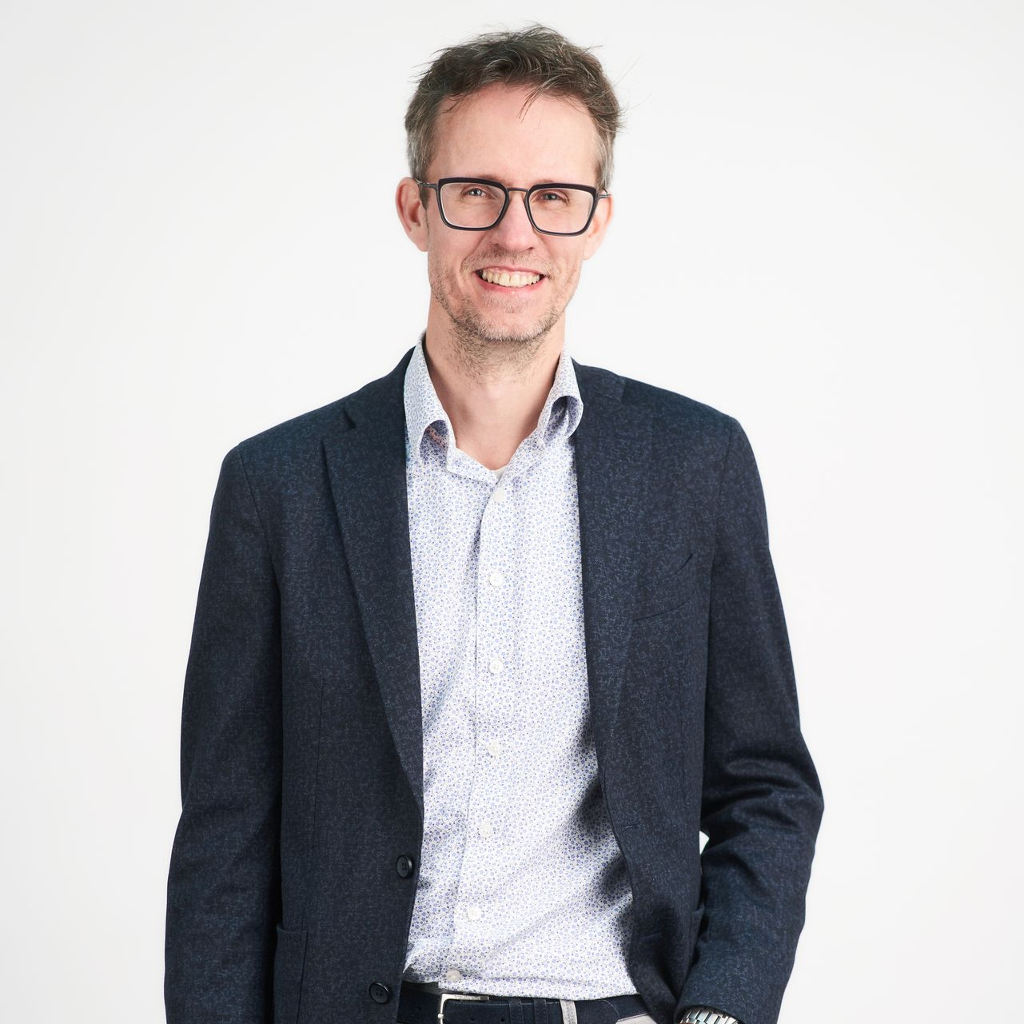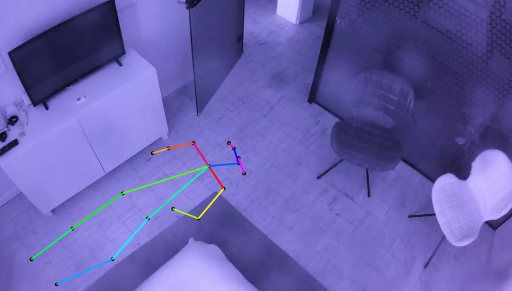Artificial intelligence has become an integral part of our lives in recent years. This is also true for healthcare. It is accelerating medical advances, helping to improve the quality of care, and reducing the pressure on care workers. Where does the healthcare sector stand today in terms of AI? Where are the opportunities and what are the bottlenecks? And why will the major advances in AI fall detection come from vision rather than radar? Nobi asked AI experts Stijn Verrept (Nobi's founder and CTO) and Frederik Calsius (Nobi's AI Specialist).

Frederik Calcius

Stijn Verrept
Stijn Verrept: "With AI, the sky is the limit. So much is already possible, and this is becoming clearer every day. People are finding increasingly clever ways to use AI and other algorithms to serve patients or consumers. Take, for example, online shops with an infinite range of goods, such as Amazon. Without brilliant algorithms, they are completely worthless. But thanks to smart calculations, they know their customers inside out. This dramatically improves efficiency, shopping quality, and user-friendliness.
AI can also make a difference in healthcare. The pressure on care workers is extremely high and will continue to rise the coming years. The sector will have to fundamentally reconsider its priorities if we want to continue to guarantee the right to high-quality care. Technological, AI-driven innovations like Nobi will play an increasingly important role.
Superior-quality and hyper-efficient care with a warm, homely feel
AI is factual, objective, and not distracted by biases or other human challenges that can reduce the quality of care. In addition, AI facilitates ultra-fast diagnosis, allowing doctors to intervene quickly and preventively.
Stijn Verrept: "Throughout their careers, doctors are influenced by past experiences. AI offers them support by looking at symptoms in an objective way. For example, AI will play an increasingly important role in medical imaging for cancer screening in the coming years. This is currently done with the naked eye on large screens, but people are only human. Artificial intelligence can be a huge help here. Symptoms will be recognized and diagnosed at an increasingly earlier stage, increasing the chances of successful treatment. Of course, monitoring by a doctor remains crucial."
"Today, I would say that AI in healthcare will make the biggest difference by supporting the sector administratively, providing even faster and more accurate medical analyses, and ensuring patient safety with 24/7 health monitoring.
-
A threat to doctors and care workers? Frederik Calsius: "Not at all! I find it hard to estimate how this will evolve in the coming years because it is moving too fast. But today, I would say that AI in healthcare will make the biggest difference by supporting the sector administratively, providing even faster and more accurate medical analyses, and ensuring patient safety with 24/7 health monitoring. The pressure on care workers needs to be reduced as quickly as possible if we are to continue to guarantee care for all. AI-driven technologies like Nobi will be required in the coming years to make this possible."
AI advances in healthcare: data and legal framework needed
Stijn Verrept: "If we are to make full use of the possibilities AI offers for patients and caregivers, we need data. Lots of data. With this data, we can train artificial intelligence and make it even more meaningful for people and society. We need a legal framework that protects users, but also provides sufficient latitude to train AI applications. This is a challenging but crucial balancing act that policymakers must address in the coming years."
Stijn is convinced of the importance of an international system that aggregates patient records in an anonymized way. "It will help AI to bring new insights to the medical world and will be an accelerator for preventive healthcare, among other things. Pooling patient records on an international level will have to be done by governments. This certainly seems possible at the European level, but it will take time. It will take much longer at the international level. It will be difficult and time-consuming, but not impossible."
"It will help AI to bring new insights to the medical world and will be an accelerator for preventive healthcare, among other things."
80% more falls detected thanks to AI
In the run-up to large, international AI collaboration systems, artificial intelligence is already making a huge difference in smaller, local systems. Residential care homes, for example, can refine and improve daily operations thanks to Nobi's insights and support. Nobi helps reduce the time between a fall and assistance to as little as 92 seconds and ensures that no falls ever go undetected. A pilot project in Flanders showed that 80% more falls were detected in rooms equipped with Nobi than in rooms with traditional call buttons.
Nobi's optical sensors as a differentiator
Providing optical insight into user behavior is one of Nobi's key differentiators from competitors who often focus on radar. The ability to interpret images before and after a fall is crucial in fall detection and prevention. It's not only the key to accurate fall alerts, but it also helps caregivers quickly provide appropriate care after a fall and prevent falls in the future.

Frederik Calsius: "Artificial intelligence does not think for itself. The output is black and white. If we want to be able to draw relevant conclusions, interpreted, non-binary information is very important. With vision, we can teach a computer to see the world the way we humans do. Take a dog, for example. We recognize that it's an animal with our eyes. Radar detects a dog as '1', just as it detects a person or a plant as '1'. It cannot distinguish between objects. In fall detection systems, this leads to a large number of false positives (incorrectly detected falls) and little in-depth analysis.
Stijn Verrept adds: "We deliberately chose optical sensors for Nobi because they are the key to accuracy and preventive healthcare. By working with 'vision', we give our smart lamps context and nuance. Radar detects a fall but cannot do anything else with the information. The fall happens, and the person is helped - end of story. With 'vision', we show how a fall happened using an (anonymized) image and help prevent future falls."
The new Nobita
Now with optical sensors
Driven by the ambition to be best in class, Nobi is constantly improving its products. With accuracy and foresight as its compass, Nobi abandoned radar and now works exclusively with optical sensors (vision). Nobi lamps were already using optical sensors. Now we are also using them in our Nobitas.
As a result, only Nobitas with vision will be available as of today. Customers who bought a Nobita with radar will receive the latest version free of charge. The Nobi support team will contact them shortly to make further arrangements.
Would you like to know more about the new Nobitas, or do you have any questions about the return policy? Please contact support@nobi.life.
Nobi's lamps are smart due to artificial intelligence, which needs to be trained. This is why newly installed Nobitas must go through a learning phase to get to know the house and its occupant. During this period, the lamp will emit light but cannot detect a fall. We notify our customers as soon as the lamps are out of learning mode and ready for action.